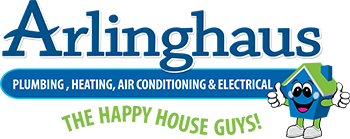Imagine if you will a hot summer day, and without warning your air conditioner dies. You need a replacement ASAP. This is a time when you might be tempted to just get it done within a day or two. However, you need to stop and think first. With these air conditioning tips, you can minimize hassle and get the biggest bang for your buck.
1. Find an HVAC Company You Can Trust
Ask any expert about the most important thing you can do for your air conditioner, and they will probably tell you that you have to get it installed properly in the first place. Poor installation can lead to your entire HVAC system having problems or equipment dying long before it should. For good installation, you need a company that supports the work they provide you. Ask for recommendations from family and friends, and start scouting out businesses. Talk to multiple companies about what they can do for maintenance and repair, and research online to discover their track record for customer satisfaction. Confirm that they are licensed with the state and that they only use employees or contractors who are also licensed appropriately.
Narrow down the list to a few contenders, and get quotes from each of them. If you notice a big difference in price estimates, ask for details to distinguish them. The ones charging more may be using better equipment and more updated technology, or they might just be selecting more expensive products for your home. Be wary of selecting the least expensive option based simply on cost. Cheaper does not always mean that you are getting a good value. You would be better off to pay more for excellent service than to have inadequate installation and pay extra to get it repaired.
2. Buy the Right Size
As with so many things about your home, just going for the biggest one is not always the best way to go. The trouble is you may not have any idea how to estimate the right size of air conditioner for your home.
How Do I Learn What Is the Right Size?
There are a few tools you can use to make an educated guess about your cooling needs. You need to know the approximate square footage of your home. Subtract any areas that may be counted in this total but that you do not heat or cool (such as the garage or basement). Your air conditioner’s output measured in tons; one ton cools 12,000 British Thermal Units in an hour. For a home that is 1,500-2,000 square feet, the United States Department of Energy’s Energy Star program recommends you use a machine that cools 30,000 BTUs, or 2.5 tons. You may need more or less cooling, depending on the position of the windows in each room and how often you spend time in the room.
What Happens if My Air Conditioner Is Too Big?
Although you want to have an air conditioner that is big enough to handle your cooling needs, you definitely do not want a machine that is too big. First, larger air conditioners usually cost more, and you may not reap those savings in better cooling. They are not necessarily more efficient than a new machine that is a little smaller, so they may not save you much, if anything, in energy consumption. Second, the purpose of air conditioning is to eliminate humidity in the home as well as keep it cool. A larger machine will cool the home much more rapidly and cycle off, without taking enough time to adequately remove the humidity. This means that you may feel less comfortable with a larger air conditioner than one that is sized correctly. The best solution is to ask your HVAC specialist to conduct a cooling load calculation before you select a model and arrange for installation.
3. Check Your Ductwork
These air conditioning tips would be useless without a discussion of the entire system. Air conditioning is made up of many parts in your HVAC system, and all of those parts must work efficiently in order to deliver the cool air you need. Your ductwork is one piece of the equation that is probably not living up to your expectations. Experts estimate that up to 40 percent of the home’s cooling is lost through gaps in the ductwork. That is a lot of money that ends up floating toward your attic. There are a few ways to tell if you have leaks in your ductwork, including:
- a second floor that is always too hot
- rooms far away from the air handler that are stuffy
- obvious holes or kinks in your ductwork
Poor ductwork installation is the cause of many of these concerns, which is why it is crucial to get good service in the first place.
There are a couple things you can do to solve this problem. You may be tempted to send your husband down to the basement with some duct tape, but this is probably not adequate. Duct sealing is very effective at reducing wasted energy, but it must be done correctly. When you ask a professional HVAC expert to perform your AC replacement, find out if you can get duct sealing done at the same time. You will feel more comfortable and you may significantly cut down on your energy consumption.
4. Consider Energy-Efficiency for Cost Savings
Although seeing that big number at the bottom of the estimate can be a bit intimidating, it is worth it to look at the long game on this one. Unless your current air conditioner is relatively new, chances are pretty good the latest models of air conditioning units are far more efficient than the one you have. This is a very good thing, because efficient units use less energy, saving you money while they rescue you from the summer heat. The U.S. Department of Energy estimates that you may spend 20-40 percent less on your cooling costs with a new machine over one that is 10 years old. The savings can add up fast.
Efficiency for air conditioners is measured in what is known as a Seasonal Energy Efficiency Ratio (SEER). You do not have to be a professional to know that a higher number means greater efficiency. If you buy a machine with a SEER rating of 14-16, depending on the type of system you have, you can also get a $300 tax credit on your purchase. It is only a portion of the price you pay, but it takes a little of the sting out of the cost, and you will save even more on your energy bills.
5. Ask About Maintenance and Warranty
You can expect an air conditioning unit to last about 10 years, or a little longer if you take very good care of it. However, sometimes things happen. Be sure to ask about the warranty on specific brands of machines. This is also an excellent time to find out about maintenance packages that the company offers. Some businesses allow you to prepay for regular service when you buy the air conditioner, so you aren’t worried about the money you spend for upkeep. Regular maintenance could mean the difference between an air conditioner that works well for years and one that constantly breaks down unexpectedly or doesn’t work the way it should. That makes it quite a useful investment.
Invest the Time to Save in the Long RunNo one wants to suffer for days or even weeks with no air conditioning, but investing a few hours of your time to make a better informed decision will save you a lot of heartache and money in the long run. Follow these air conditioning tips before scheduling your AC replacement, and you will make a solid long-term investment in your home.
Still deciding between fixing your old system or getting a new one? Learn more about why you should choose HVAC replacement over repair.


